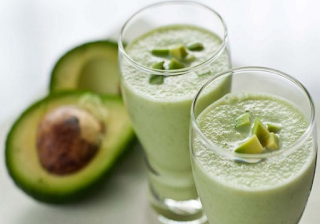If
you've seen the headlines last month indicating that saturated fat is
considered harmful to the heart, you can (of course!) Confused. After all, for years, doctors and scientists have recommended to reduce the saturated fat for heart health. Is it time to rethink this advice? Barely. Here's the deal.
The investigation that led to the recent new splash was an analysis by Canadian researchers to a long-term observation dozen diet studies that included a total of 90 000-339 000 participants from different countries. The study volunteers reported commonly consumed foods.
The investigation that led to the recent new splash was an analysis by Canadian researchers to a long-term observation dozen diet studies that included a total of 90 000-339 000 participants from different countries. The study volunteers reported commonly consumed foods.
The researchers then followed the health of these people for years, sometimes decades. The
analysis found no association between the consumption of saturated fats
- dairy products (such as cheese, butter and milk) and meat are two
main sources - and the future risk of coronary heart disease, stroke ischemia (stroke as result of a blocked vessel), diabetes or cardiovascular disease or death from any cause.
Less
surprisingly, the analysis also found that trans fats are harmful to
health, with the highest intakes of trans fat linked to an increased
risk of coronary heart disease and mortality rate of 21% to 33% higher compared with the lowest consumption. The results were published August 12 in the journal BMJ.
Unfortunately, the news coverage of this analysis a key point often missed. Not
only the amount of saturated fat you eat, it's what those calories are
replaced by (the quality of your diet in general) that affects your
health. Most
people naturally tend to keep your calorie intake at a constant level
over time (scientists call this "the preservation of calories").
If you cut calories from saturated fat from your diet, missing calories should come from elsewhere ("replacement calories"). People
with low saturated fat consumption can replace those calories with
other unhealthy foods such as refined carbohydrates (like white bread,
white rice) or sugary drinks. So
even if they eat less fat, your overall diet is no better - and perhaps
worse - that people are not trying to limit saturated fats.
Many studies show that substituting unsaturated fats - found in fish, nuts and vegetable oils - saturated fats improves health. For example, a careful analysis of the observation results of the study of health nurses, in which my colleagues and I (JEM) followed 80,000 nurses initially healthy for many years, suggested that the replacement of only 5 % calories from saturated fat unsaturated fat calories reduces the risk of coronary heart disease by 42% and is more effective in preventing heart attacks than simply reducing overall fat intake. Short-term feeding trials also show heart benefits of reducing saturated fat intake while increasing the intake of unsaturated fat, including improved cholesterol levels in the blood and insulin sensitivity.
The most damaging type of dietary fat is trans fat, also known as partially hydrogenated vegetable oil. These fats are a double whammy: they raise cholesterol "bad" LDL cholesterol and lower "good" HDL cholesterol. New government regulations are to reduce the presence of trans fats in foods, but they are still fats in many products.
Many studies show that substituting unsaturated fats - found in fish, nuts and vegetable oils - saturated fats improves health. For example, a careful analysis of the observation results of the study of health nurses, in which my colleagues and I (JEM) followed 80,000 nurses initially healthy for many years, suggested that the replacement of only 5 % calories from saturated fat unsaturated fat calories reduces the risk of coronary heart disease by 42% and is more effective in preventing heart attacks than simply reducing overall fat intake. Short-term feeding trials also show heart benefits of reducing saturated fat intake while increasing the intake of unsaturated fat, including improved cholesterol levels in the blood and insulin sensitivity.
The most damaging type of dietary fat is trans fat, also known as partially hydrogenated vegetable oil. These fats are a double whammy: they raise cholesterol "bad" LDL cholesterol and lower "good" HDL cholesterol. New government regulations are to reduce the presence of trans fats in foods, but they are still fats in many products.
What is the moral? The
type of fat, in fact, matter, so choose healthy foods with unsaturated
fats (fish, nuts, and most vegetable oils), limit foods high in
saturated fats (butter, whole milk, cheese , coconut palm oil, and red meat), and try to avoid foods with trans fats. Achieve the ultimate goal can be tricky. In supermarkets, check package labels carefully. The best way to know if the trans fat is present is to read the list of ingredients; whether the phrase "partially hydrogenated oil" appears, then trans fats are actually lurking.
Many experts and professional associations, including the American Heart Association recommends a diet that (1) focuses on vegetables (brightly colored vegetables, including leafy greens, are the best, and apples white land does not count), fresh fruits and whole grains (whole grains, breads, rice and pasta); (2) includes fish, beans, nuts and seeds, poultry, low fat dairy products and non-tropical vegetable oils (such as canola oil or olive oil, but no coconut or palm oil); and (3) Limit sweets, sweetened beverages, and red meat. Well known examples are the Mediterranean diets and Dash. People who eat these diets have always had much better health outcomes than those who do not.
By: JoAnn E. Manson, MD DrPH.













0 komentar:
Post a Comment
"Thank you for visiting my blog, please leave a comment in the space provided."